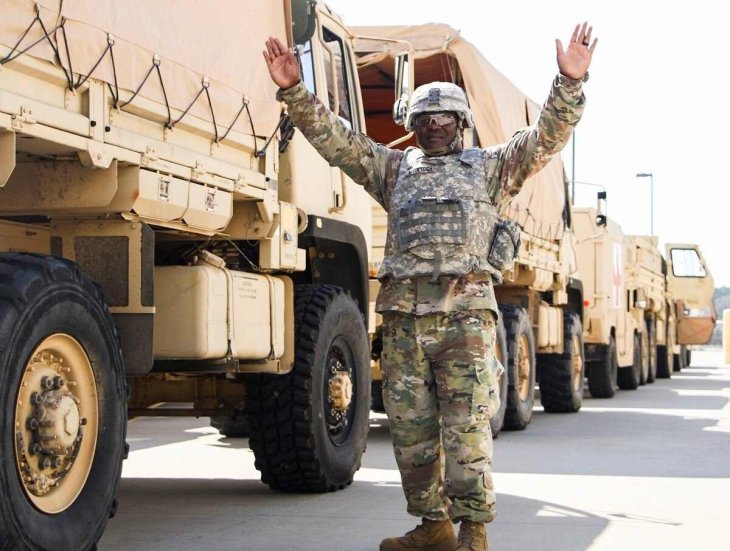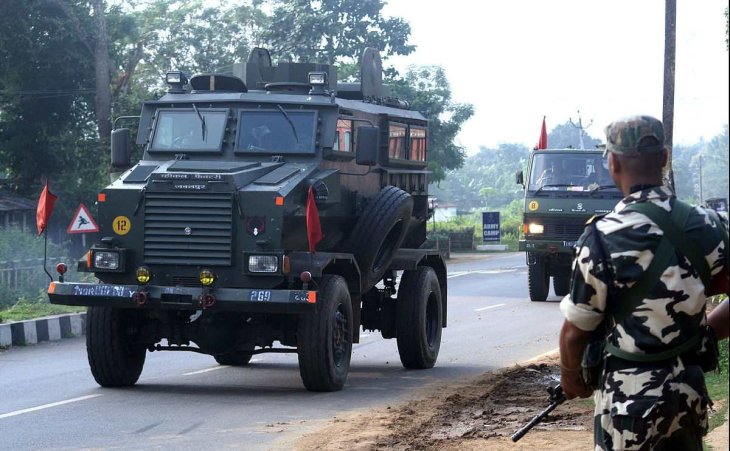How AI Can Help Speed Up Military's Capacities
Aadhya Khatri - Jul 25, 2019

In the armed force, AI is gaining a solid standing among other technologies. From powering autonomous weapons to controlling unmanned vehicles
- 6 Cutting-Edge Features of Galaxy AI & Lineup of Supported Samsung Smartphones
- 4 Ways AI Could Change The Mobile Gaming Industry
- New ‘Deep Nostalgia’ AI Allow Users To Bring Old Photos To Life
AI is proving its power in an increasing number of aspects, from the one that powers our camera to those used to create a short video out of just an image. And for the armed force, artificial intelligence is gaining a solid standing among other technologies. Let’s take a quick look at the top current applications of AI in the military.
Autonomous Weapons And Weapons Targeting

Targeting systems are judged on the speed at which they lock a target and how accurate they can be. However, as countermeasures for this technology are developing fast, these systems must be improved to lower the chance of them getting interfered. One of the most prominent solutions is the application of computer vision and machine learning.
To make autonomous targeting weapons, the AI controlling them must be trained to recognize threats as well as when to notify a human monitor of a possible danger. These targets can be an aircraft trespassing the airspace or a car on a minor road.
Currently, some systems can fire without the approval of a human moderator. One of the most notable advantages of such a weapon is that it is immune to the distractions and influences that may affect human.
Surveillance

The armed forces all over the world get visual data from a slew of sources on a daily basis. So now, the problem is not how to collect the information, but how to process it. And that it when AI and machine vision prove their worth.
They can skim through data sets and collect vital information faster than any human analyst. Computer vision software is currently used by the US Department of Defense and other organizations for surveillance operations.
Artificial intelligence has accelerated surveillance so much that the Trump administration has proposed to boost the funding for next year’s AI-driven missile detection programs to $83 million.
Homeland Security
One of the most valuable capacities of AI is to make out patterns and trends from a data set and then give predictions. The whole process is called predictive analytics, and it is in use for homeland security.
Models of predictive analytics can give out warning of suspicious activity from signs like weapons or bomb materials being purchased at stores. With this kind of notice, the authority can intercept a potential act of terrorism before it has a chance to happen.
Palantir is a predictive analytics program that is used by several US government agencies like LAPD, FBI, and CIA. The AI can analyze a large amount of data to identify signs of unlawful acts faster than any human data analyst can.
Cybersecurity

Cybersecurity is the top concern of the armed force all over the world. As the military has a vast network of defense containing information they cannot afford to lose, the chances of a data breach are high. In this case, AI can predict the likelihood of a threat to the system before it has the opportunity to impose any damage.
Nowadays, AI can address several situations, from a new flash drive or email that may contain malware. They can also neutralize the danger before a human operator falls into the trap and cause a threat to the whole network.
Logistics

Knowledge is power, and that holds true now more than ever before. In the military or even a corporation, AI can help manage a large sum of information for maintenance and logistics, the two vital aspects of any military operation.
Performing Maintenance On Vehicles

The armed force has a large number of different vehicles and equipment, and they come with the need to be maintained or repaired when damaged. Given the sheer number of vehicles that require maintenance, any system that can quicken the process will be welcomed. And in this case, the answer is artificial intelligence.
Autonomous Vehicles

There are lots of practical applications of autonomous vehicles powered by AI. For example, many military defense contractors are developing uncrewed trucks and cars for logistics and construction. Currently, Boeing is testing autonomous spacecraft for the deployment of satellites. Other projects include autonomous aircraft and drones for the armed force, as well as uncrewed submarines.
Featured Stories

Features - Dec 18, 2024
6 Cutting-Edge Features of Galaxy AI & Lineup of Supported Samsung Smartphones

Features - Jan 23, 2024
5 Apps Every Creative Artist Should Know About

Features - Jan 22, 2024
Bet365 India Review - Choosing the Right Platform for Online Betting

Features - Aug 15, 2023
Online Casinos as a Business Opportunity in India

Features - Aug 03, 2023
The Impact of Social Media on Online Sports Betting

Features - Jul 10, 2023
5 Most Richest Esports Players of All Time

Features - Jun 07, 2023
Is it safe to use a debit card for online gambling?

Features - May 20, 2023
Everything You Need to Know About the Wisconsin Car Bill of Sale

Features - Apr 27, 2023
How to Take Advantage of Guarantee Cashback in Online Bets

Features - Mar 08, 2023
Comments
Sort by Newest | Popular